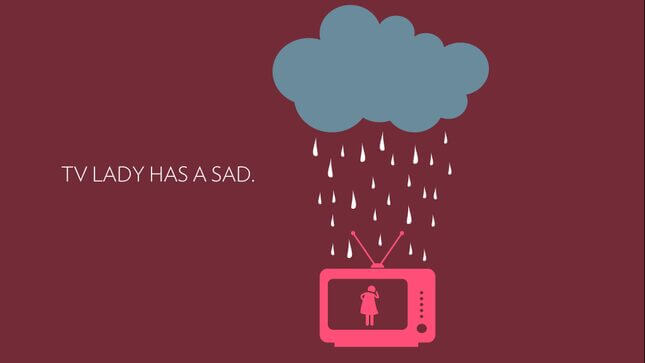Ladies Be Moody: The Sad Sack Women of Anti-Depressant Commercials
Latest

Oh, Sepia Toned Lady Who Is Too Depressed to Look Out the Window! Ever since pharmaceutical companies got the go-ahead to market medication directly to consumers, she’s been an advertising powerhouse. Sometimes she doesn’t want to go camping. Sometimes she doesn’t want to cook eggs. She never wants to play with the goddamn dog. And she raises the question: “What in the fucking fuck, advertising?” Why is depression persistently characterized as such a starkly gendered disease?
For many people, anti-depressants are lifesavers. Or they can vastly improve the quality of an individual’s life. Anti-depressants aren’t the problem here. The problem is how they’re marketed—television almost certainly isn’t the optimal delivery mechanism for medical advice, obviously. And a quick survey of prominent antidepressant commercials (below) reveals that they focus overwhelmingly on women—to the detriment of both women and men. The overall effect that advertising has had on perceptions of mental illness might be positive to a degree (awareness is helpful!), but by framing depression as a “woman problem,” they both discourage men from taking their symptoms seriously and anchor women even more firmly in the bullshit bog of hyper-emotionality. Depression: It’s like when Carol is on the rag, only all the time!
Anyway, let’s take a look.
Cymbalta #1: Cymbalta is a drug for Dust Bowl prairie women who are so depressed they have to sit on the stairs instead of a comfy chair, and for failed housewives who just want their dumb kids to leave them alone. Also Stringer Bell. Cymbalta helps them to be able to look out the window, touch the dog, and go shoe-shopping again (shoes, amirite ladies!? [dies]).
Cymbalta #2: Before Cymbalta, I never looked out the window or went camping. Now I look out the window and go camping, like, all the time! So glad I had the opportunity to inform my doctor about the existence of this very well-known medication!
-

-

-

-

-

-

-

-

-

-

-

-

-

-

-

-

-

-

-

-

-

-

-

-

-

-

-

-

-

-

-

-

-

-

-

-

-

-

-

-








































